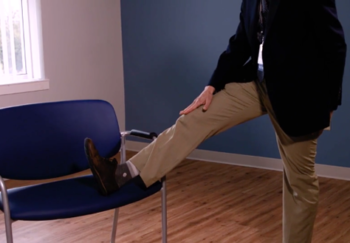 Regaining your strength after chemo is an important part of the recovery process. Strength training can boost your energy, improve your balance, and allow you to return to activities you enjoy. Moreover, a healthy exercise practice can help you feel better physically and mentally.
Regaining your strength after chemo is an important part of the recovery process. Strength training can boost your energy, improve your balance, and allow you to return to activities you enjoy. Moreover, a healthy exercise practice can help you feel better physically and mentally.
Physical Weakness and Cancer Treatment
Cancer and cancer treatment can be exhausting. Fatigue can be a side effect of treatment, not to mention that you simply need more sleep while your body heals. During this time, it’s not surprising that you may want to move less and the couch looks more inviting than usual. But avoiding activity can actually make you feel more tired and weak.
Why You Need to Gain Back Your Strength
Muscles are important. This isn’t just about physique or body building; your strength and muscle mass are involved in balance and posture. Mesothelioma.net reported that even if you feel tired before a workout, routine strength-building exercise can significantly reduce fatigue over time. It can also help increase your mobility and quality of life.
How to Gain Back Your Strength
It’s easy to let excuses keep us from getting the exercise we need. Whether you’re feeling fatigued or just short on time, some exercise is still better than none. Starting small and gradually increasing the duration and intensity of your workout may help you overcome some of your feelings of resistance and build an exercise habit.
If you don’t have the time or energy to do a full workout, add extra movements throughout the day. Use one hand to steady yourself at the bathroom counter, and do squats while you brush your teeth. That takes no extra time and just a little extra energy. Small changes such as taking the stairs rather than the elevator can add up over time as well; keep making those changes and adding more as you go. U.S. News & World Report provided a list of simple strength building exercises that you can practice at home.
Before jumping into a vigorous exercise program, discuss your exercise needs with your medical team. You may need to modify some exercises in order to safely perform them. For example, some side effects of treatment, such as lymphedema, may require you to wear compression sleeves during exercise to prevent excessive swelling. This is not a reason to avoid exercise; in fact, Verywell reported that gently exercising your lymphedema arm can help improve its circulation to reduce swelling.
If you’re looking to regain your strength, take advantage of UVA Cancer Center’s exercise program. You can meet with an exercise physiology student who will create an individualized exercise program to meet your goals.
Often the biggest hurdle to exercise is getting started. Once you embrace the idea of regaining your strength after chemo, start small and gradually increase the amount of exercise to build endurance and muscle — and have fun in the process.
